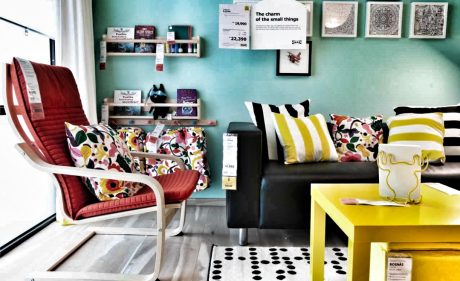
Filipinos are excited about news that Swedish furniture retail giant IKEA will soon be opening in the Philippines. The question is, where will IKEA be sourcing its merchandise?
“Activists” have been denouncing how China is supposedly slowly taking over the Philippine economy, yet many of these snowflakes seem to fail to realise how IKEA reportedly opening its biggest store in the world in the Philippines will, itself, be potentially flooding the Philippine market with cheap imported furniture — potentially flattening an entire domestic industry in its path.
Already, even local big retailers like the SM Group are outlets for products mostly imported from China. The entry of another big retailer will likely fatten the import pipes out of which spill the massive quantities of cheap imported goods that undercut relatively uncompetitive local producers. Interestingly, many of the shrillest “activists” also sideline as social media “influencers” who pitch imported products to a following consisting mainly of trendy middle class consumers hungry for branded imported consumer goods.
The Swedish retail behemoth setting up shop in the Philippines is, of course, a good thing. But that depends on which side of the economic equation one sits.
IKEA Southeast Asia will invest an initial P7 billion for the store, which will employ some 500 Filipinos on top of spin off jobs and other business opportunities, the company said.The Philippines’ young population, with an average age of 24, drew IKEA to build its largest store in the country, said Georj Platzer, who will manage the facility once it’s finished.“Also together with the developments and condominiums, residential building together with the growing middle class, it’s a fantastic future market for IKEA,” he said.
Consumption contributes a hefty share of value to the Philippine economy. However, consumption contributes very little to the expansion of the capital base of the national economy and a discount retail business such as that of IKEA, like its domestic counterparts, will likely serve as another massive conduit for the flow of imported goods into the Philippine market possibly destroying more than it actually builds.
Furniture production, for example, is one of the remaining major domestic manufacturing and export industries in the Philippines. The furniture business encompasses thousands of small businesses employing hundreds of thousands of Filipinos. It has lately been buoyed by a healthy property development market and a large base of increasingly affluent young Filipino consumers. The arrival of IKEA which, as reported, is aiming to corner the same market may emerge as the biggest threat to the local furniture industry.
That said, there is an opportunity for domestic players to step up to the possibility of supplying the new retail kid on the block. The key, of course, lies in uplifting the quality and consistency of domestic furniture manufacturing to meet the stringent specifications and quality standards of IKEA. This remains to be seen as this will likely involve investment in capability to mass-produce furniture with very precisely-engineered parts. Because IKEA furniture is usually sold disassembled and flat-packed and transported, moved, and stored in bulk, Filipino furniture manufacturers will need to further industrialise to meet the economies of scale and efficiencies required to compete with IKEA’s formidable portfolio of global suppliers.
This is the challenge at the other end of the retail and consumption equation. IKEA will be a boon to Filipino consumers. The million dollar question is, are Filipino producers up to the challenge of seizing otherwise abundant opportunities on the supply side?

No comments:
Post a Comment